
Skeleton from an archaeological dig at Lindisfarne Abbey
There was an article about the archaeological explorations taking place along the route of HS2, the planned high-speed rail link between London and Birmingham. It highlighted the amazing number of sites being excavated, spanning the human history of the last ten thousand years. Before work begins, the route will explore such diverse sites as prehistoric settlements, lost churches, battlefields and burial grounds. The official position is that we have an unprecedented opportunity to discover and explore our history and finds are being made that are as varied as flint tools and the lost remains of Captain Matthew Flinders, who led the first expedition to circumnavigate Australia.
All well and good… it is undoubtedly very exciting stuff. For archaeologists, this is a magnificent opportunity and may encourage an interest in their history from both from communities and younger people. There is a downside, though and no mention is made of the fact that, once dug up and buried beneath the new railway lines, these sites will be lost to us forever. The artefacts found, unless they are of spectacular appearance or popular historical significance, will doubtless be deposited in museum vaults, never again seeing the light of day, or taken out for study by professionals.
The story reminded me of another article I had read about the phenomenon known as ‘childhood amnesia’. Scientists have pinpointed the age at which we lose our memories of early life at age seven. Before that, we recall early events with clarity, after that age, the same events remain, for most people, no more than odd and disjointed snapshots. The idea is that we process and store memories differently as we leave infancy behind. The effects of the events that form the basis of those lost memories, however, remain with us and will colour our lives.
I consider myself lucky to have many clear and detailed memories of my earliest years. Amongst the happier memories of dancing, stories, moorlands and dogs… all of which have stayed in my heart for a lifetime… are sadder moments, like the desperate and fruitless search for my lost tortoise, a great-grandmother’s deathbed and saying goodbye to my father when he was sent to serve overseas. These darker experiences of ‘loss’ also remained with me and, when my partner was dying, being able to trace their cumulative path was crucial to healing the emotional morass into which I fell.
The therapist to whom I had been referred asked me to write my life story. Quite unprofessionally, I felt at the time, she confided, one day, that she really looked forward to our weekly sessions as she ‘couldn’t wait’ to hear the next instalment of a ‘fascinating’ life. Be that as it may, without the whole story, we might not have found what was the root of the problem. The coping mechanisms for ‘loss’ that had served me throughout my life to that point had gone into overdrive and collapsed. If they had known what was waiting for them in later years, they would have run away without so much as a pocket-handkerchief… but that is another story.
What had made me join the dots between the two articles, though, was an attempt to research the folklore and folktales of Derbyshire and my singular inability to find more than disjointed snippets. All I could find were a handful of undetailed hauntings, a little about Hob… a rather helpful giant, or elf, depending on the version you read… and a curious selection of tales about men finding and smoking pipes that lead them to encounters with the fairy realms. Either what once passed for tobacco in Derbyshire was ‘interesting’, or there is something worth exploring in this tale that leads back to an older time when sacred herbs were used for visionary inner journeys.
At best, the little I could find was dryly told; at worst, it was recounted with the condescension reserved for the superstitions of the ignorant. Yet, these were echoes of tales that once coloured people’s everyday lives and shaped their beliefs and behaviour.
I find it tragic that we are willing to let the old lore disappear. If nothing else, these age-old stories and local customs add a rich texture and an extra dimension to the landscapes we call home. I hoped to collect some of these tales and share them here, but when I asked people to share the Living Lore of their own area, only a handful responded, from a whole world of readers, writers and bloggers.
I would like to think that the old tales still survive, in the villages and countryside where time chooses a slower path. I would still like to collate and share the stories before they are lost as I truly believe they are an important part of our heritage and shed light, not only on human behaviour but on our respect for and interaction with the natural world around us.
Some of what our ancestors recognised as magical creatures and eldritch lights, we might be able to explain in terms of natural phenomena. Others may be explained through the lens of the time and the stories with which those who saw them had grown. In our own era, we are more likely to attribute strange goings-on to conspiracy theories or UFOs… and many alleged sightings bear a striking resemblance to earlier folk tales.
Like a memory or some unidentifiable object dug from the earth, the old lore and tales may hold a truth beyond our current comprehension. They are as much a part of our history and of the human story as a worked flint, a bronze sword, or a childhood memory and, like them, once lost they are gone forever.


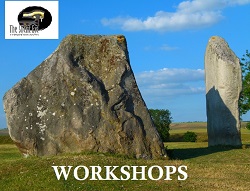



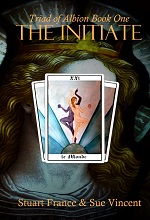


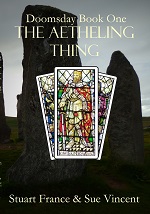
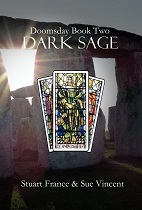
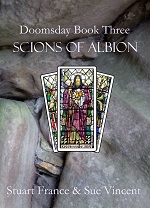
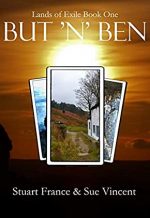






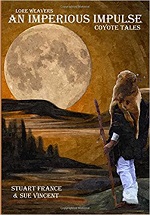


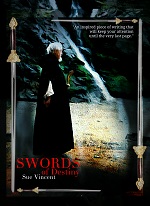

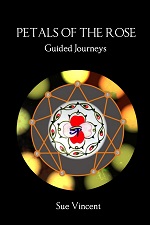

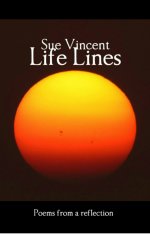
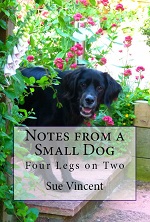



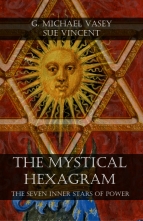

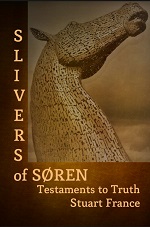


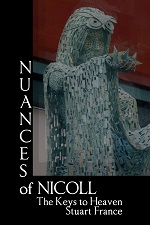


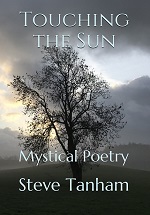

Reblogged this on France & Vincent.
LikeLiked by 1 person
Reblogged this on Sun in Gemini and commented:
From Sue…
LikeLike
Thanks for sharing, Steve x
LikeLiked by 1 person
Most forget our land is full of such history and artefacts lying beneath us. Although I welcome progress, I also hate it, it’s a strange world.
Personally, I have a terrible memory of what I know was such a happy childhood, it’s very sketchy. I know I should remember more and I have often wondered, is it because I experienced close family trauma and loss during my young adult stage? Did those bad memories, which are as if it were yesterday, take over the good? Not sure, who knows.
A beautifully written piece, Sue. I also am intrigued when visiting a new area to learn of its folklore, old tales and history. You’ve made me want to research my local areas stories. I may get back to you about that.
LikeLike
I have no problem with progress, but I do dislike the purely money- led decisions that lack respect for our heritage…and they go through far too often for my taste.
I do think traumatic events can overshadow earlier memories, but my experience with my son’s fragmented memory suggests that they Ard all still here. .If e can find the right key to unlock them.
I have always delved into history and folklore when I’ve moved around. If you find anything Sam, do let me know 🙂
LikeLiked by 1 person
I remember your request for folk lore and old tales and thought about it for a while before deciding I knew mostly ghost stories. I’ll have another think, Sue. As for the archaeological explorations along the proposed new rail route, I suppose we can take heart from knowing that those sites, already ‘lost’ will now at least be recorded. Our council archaeologist has shown me his maps on which every ancient site is recorded – there’s hardly a bit of land which doesn’t have something buried in it.
LikeLike
A lot of ghost stories come under folklore, Mary, apart from personal experience. ..and I have a place for those too
As far as land is concerned, there can vbe few places where humankind have not left some kind of mark, especially in such a small country as ours.
LikeLiked by 1 person
I’ll have a ponder.
LikeLiked by 1 person
Cool 🙂
LikeLiked by 2 people
Reblogged this on The Light Behind the Story.
LikeLike
Thanks for sharing, Alethea xx
LikeLiked by 1 person
My pleasure ❤
LikeLiked by 1 person
I’ve been thinking lately about how much I once wanted to be an archeologist when I was a child. It makes one wonder how different one’s life might have been. Seeing the image of the skeleton filled me with an impulse to caress the bones as a mother might. They looks so exposed and vulnerable.
LikeLike
Me too, Alethea… and I still would if I could find a course on the period I really want to study. 😉
We were lucky enough to watch these bones being uncovered at the Abbey in Lindisfarne last year… one of a number of skeletons buried beside the Abbey, minks who probably knew St Aidan. It was a very moving experience.
LikeLiked by 1 person
What an experience! I can imagine it must have been quite moving. ❤
LikeLike
Yes, it was. Very much so. ❤
LikeLiked by 1 person
History is not even taught imperfectly these days. The past is considered obsolete. And yet superstition and nostalgia for a world that never existed rules our politics. It’s a strange time we live in.
LikeLiked by 1 person
We seem to be quite selective about what we remember as a people and many of those choices seem to lack reality.
LikeLiked by 1 person
I didn’t realize that we lose most of our childhood memories at age seven – the end of “play” and start of “serious schooling?” I wonder. I agree that the loss of old wisdom, superstition, magic, and lore is sad, that fascinating connection to the past severed. A touching post, Sue.
LikeLike
There are various theories as to why we forget, including development in different part of the brain, but it is a curious phenomenon and odd to think of how many memories we don’t even realise we have lost.
It makes me wonder what effect losing our collective memory might have.
LikeLiked by 1 person
All we have to do is look at the condition of the world to see what happens when we lose our collective memory. It’s not good.
LikeLiked by 1 person
I agree… and that is one reason for giving the past its place in the present.
LikeLiked by 1 person
Preserving the past is crucial. It’s the archeology and history, but it’s also the people and their memories. Great post, Sue!
LikeLike
They are all closely linked, and we cannot afford to lose too much.
LikeLiked by 1 person
Hear hear!
LikeLiked by 1 person
I’ve thought about the systematic (and sometimes totally irresponsible) opening of ancient Egyptian tombs and unwrapping of mummies who are then exhibited in museums. Think of Tutankhamen and many others, lying there exposed to all. When I think of the rituals and care accompanying the entombment of these individuals it seems wrong. At the very least, after examining the remains for scientific purposes, perhaps they should be respectfully returned to their resting places, and only the data and photographs made available to scholars and interested others. (These thoughts lurk behind the plot of my novel She Who Comes Forth.) Also, the Royal BC Museum, among others, no longer puts human remains on exhibit. A travelling exhibit of Egyptian artifacts last year included mummies, but this museum decided not to display them on its premises.
LikeLiked by 1 person
There is a growing movement for reinterring human remains once catalogued and examined. It shows respect, not just for the dead, but for the beliefs held by those who buried them.
LikeLiked by 1 person
Exactly! I’m glad to hear this is being done.
LikeLike
Me too.
LikeLiked by 1 person
‘…run away without so much as a pocket-handkerchief…’ now, why does that sound familiar? 😀 … the only memories I have of my childhood are things I remember remembering … and for a lot of things that ‘once-removed-ness’ is a good thing.
I’m all for technology too, but of course there’s always the usual caveat, of using with authority and responsibility, that seems to be in short supply these days.
LikeLike
Heh 😀
Yes, as usual, it isn’t the technology that is at fault…
LikeLiked by 1 person